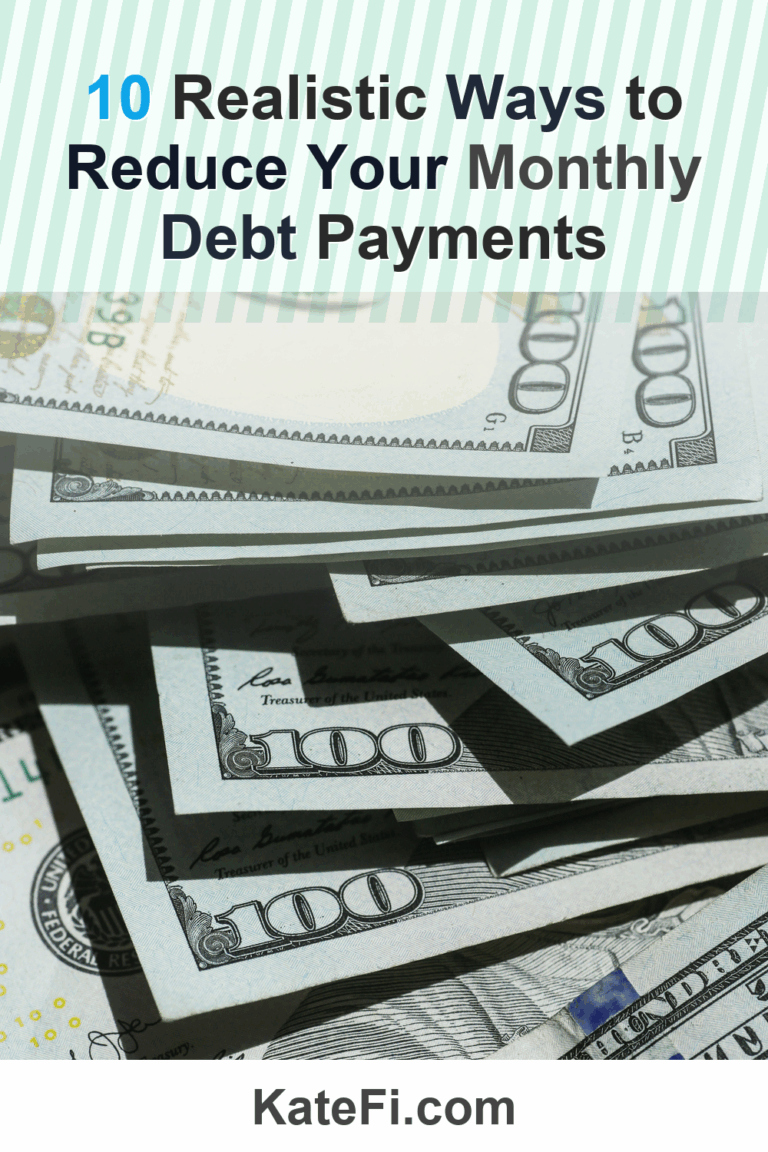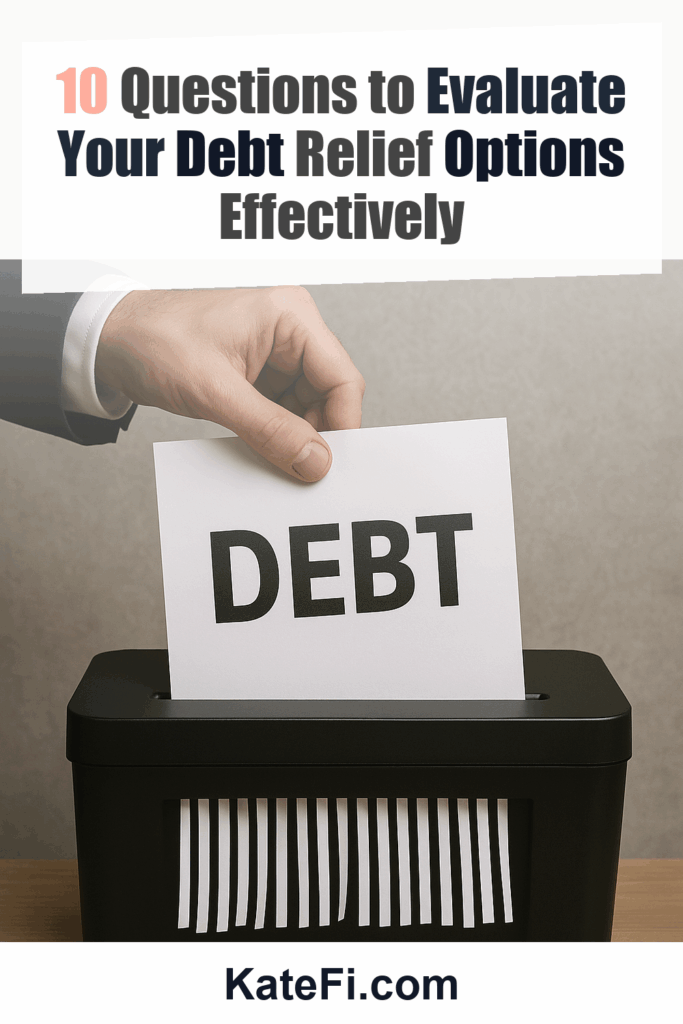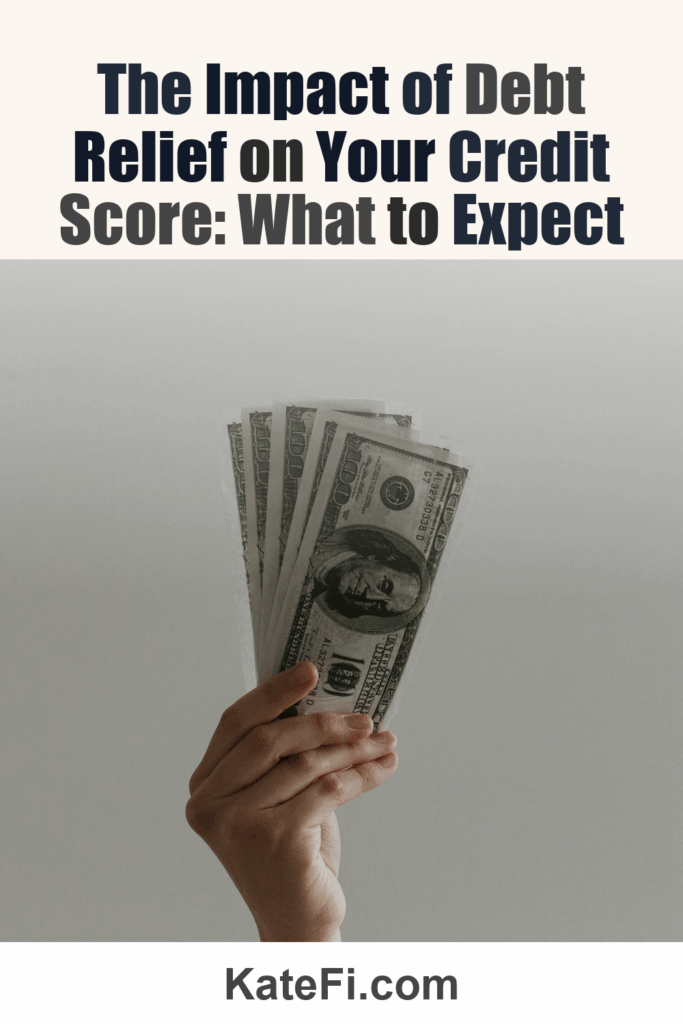10 Realistic Ways to Reduce Your Monthly Debt Payments
In today’s financial landscape, managing debt is a pressing concern for many individuals and families. The weight of monthly debt payments can feel overwhelming, leading to stress and a sense of hopelessness. However, with the right approach and strategies, it’s possible to significantly reduce these payments and regain control over your financial future. This post dives into ten realistic methods for lowering monthly debt obligations, including debt settlement, consolidation, and Debt Management Plans (DMPs). We’ll explore the pros and cons of each option to help you determine which path may be best for your unique circumstances.
Love our content? Show your support by following us — pretty please!🥺
FOLLOW ON PINTEREST
Hi! I’m Kate, the face behind KateFi.com—a blog all about making life easier and more affordable.
To get started, consider getting a free consultation to review your options.
1. Understanding Your Debt Types
What You’ll Learn on the Call
- Estimated timeline and monthly payment range
- How credit may be affected in the short term
- What documents to gather to move faster
Not available in IL, KS, OR, TN, UT, WV.
Before you can effectively reduce your monthly payments, it’s essential to understand the types of debt you’re dealing with. Common categories include:
- Credit Card Debt: Typically high-interest, revolving credit.
- Medical Bills: Often unanticipated expenses that can pile up quickly.
- Personal Loans: Fixed or variable interest loans that require monthly repayments.
- Student Loans: Either federal or private loans with varying interest rates and terms.
Take some time to categorize your debts; this will inform your strategy for reducing monthly payments.
2. Debt Settlement: Pros and Cons
👉 Start Your Free Debt Relief Review
Not available in IL, KS, OR, TN, UT, WV.
Debt settlement involves negotiating with your creditors to pay a lump sum that is less than the total amount owed. This can result in significant savings.
Pros:
- Can significantly lower the amount you owe.
- One-time payment to settle your debt.
- Reduces the overall number of debts you have to manage.
Cons:
- May negatively impact your credit score.
- Potential tax implications if the forgiven amount exceeds $600.
- Not all creditors will agree to settlement terms.
Who Should Consider Debt Settlement? If you’re struggling with a substantial amount of unsecured debt and have the ability to make a lump sum payment, this could be a viable option.
✅ See If You Qualify for Debt Relief
3. Debt Consolidation: A Simplified Approach
Understand pros/cons of settlement vs consolidation vs DMP for your exact mix of debts.
Not available in IL, KS, OR, TN, UT, WV.
Debt consolidation entails taking out a new loan to pay off multiple debts, thereby simplifying payments into one monthly bill.
Pros:
- Simplifies multiple payments into a single monthly payment.
- Can reduce interest rates if you secure a lower-rate loan.
- May improve your credit score if you reduce credit utilization.
Cons:
- Fees may apply depending on the consolidation method (like personal loans or balance transfers).
- If you accumulate more debt after consolidating, you may end up in a worse position.
- Requires good credit for the best terms.
Who Should Consider Debt Consolidation? This option is ideal for individuals with several debts and good credit scores looking to lower interest rates and streamline payments.
4. Debt Management Plans (DMPs): Structured Support
DMPs involve working with a credit counseling agency that negotiates lower interest rates and payments with your creditors, while you make monthly payments to the agency.
Pros:
- Often lowers interest rates and monthly payments.
- Structured program helps you stay accountable.
- Credit counseling can provide financial education and support.
Cons:
- Requires commitment, often lasting 3-5 years.
- Enrollment fees may apply.
- Could impact your credit if accounts are closed.
Who Should Consider DMPs? If you prefer a structured repayment approach and can commit to regular payments over a period, a DMP may be beneficial.
✅ See If You Qualify for Debt Relief
5. Comparing Debt Solutions
Lower Your Unsecured Debt
If you have $5,000+ in credit card or personal loan debt, a free consult can review options like settlement or hardship plans.
- One-on-one call to review your debts and goals
- See potential monthly payment reductions
- No obligation to enroll
Not available in IL, KS, OR, TN, UT, WV.
To help clarify your options, here’s a comparative overview of the three main approaches to debt reduction:
| Method | Pros | Cons | Best For |
|---|---|---|---|
| Debt Settlement | Potentially large savings, single payment | Credit score hit, tax implications | High debt, lump sum available |
| Debt Consolidation | Simplifies payments, potentially lower rates | Fees, risk of new debt | Good credit, multiple debts |
| DMP | Lower payments, structured support | Time commitment, potential fees | Desire for structure and accountability |
6. Create a Budget and Track Expenses
Reducing your debt payments doesn’t just involve negotiating; it also requires strategic financial planning. Start by creating a detailed budget. List all your monthly expenses and income sources, and categorize your spending to identify areas where you can cut back. Tracking your expenses helps to build awareness of your financial habits, making it easier to find ways to save.
Practical Checklist:
- Gather bank statements for the last three months.
- List fixed and variable expenses.
- Identify unnecessary expenses (e.g., subscriptions, dining out).
- Set realistic monthly spending limits.
7. Increase Your Income
While it may seem counterintuitive to focus on increasing income when discussing debt reduction, a higher income can provide more room for debt payments and quicker debt payoff. Consider side gigs, freelance work, or part-time jobs that align with your skills. Additionally, you could explore selling unused items or leveraging any talents you have.
8. Consult a Financial Professional
If you feel overwhelmed, consulting a financial professional can provide clarity. A qualified advisor can help you evaluate your financial situation, develop a personalized plan, and even negotiate on your behalf with creditors. They can help you determine the best course of action and offer insights on long-term financial health.
For a tailored review of your options, consider getting a free consultation.
✅ See If You Qualify for Debt Relief
9. Prioritize High-Interest Debts
When deciding which debts to pay down first, consider the snowball vs. avalanche methods. The avalanche method prioritizes high-interest debts, potentially saving you more on interest payments over time. Conversely, the snowball method focuses on the smallest debts first for quick wins. Determine which strategy aligns best with your motivation and discipline.
10. Gather Your Documentation
When seeking debt relief, having your financial documents in order will facilitate a faster review of your situation. Be sure to gather:
- Income statements (pay stubs, tax returns)
- Current debt statements (credit cards, loans)
- Monthly budget (as outlined earlier)
- Credit report (to check your credit score and see all outstanding debts)
This preparation can streamline the consultation process and lead to better outcomes.
Understanding Credit Impact
It’s important to remember that most debt relief options can affect your credit score. Debt settlement may have a more significant short-term impact, while DMPs could cause temporary drops due to closed accounts. However, as you work toward reducing debt, timely payments can improve your credit over time. Always weigh the benefits against potential impacts on your credit health.
In conclusion, tackling monthly debt payments is challenging, but it’s not insurmountable. By exploring options like debt settlement, consolidation, or DMPs, and following the steps outlined in this guide, you can create a personalized plan that sets you on a path to financial freedom.
To start your journey toward manageable debt, consider getting a free consultation today!
✅ See If You Qualify for Debt Relief
Important: This content is for education only—not legal, tax, or financial advice. Results and eligible programs vary by situation and state. Fees apply if you enroll and complete a program. Debt relief can affect credit; missed payments may lead to collections/lawsuits. Not available in IL, KS, OR, TN, UT, WV.






















